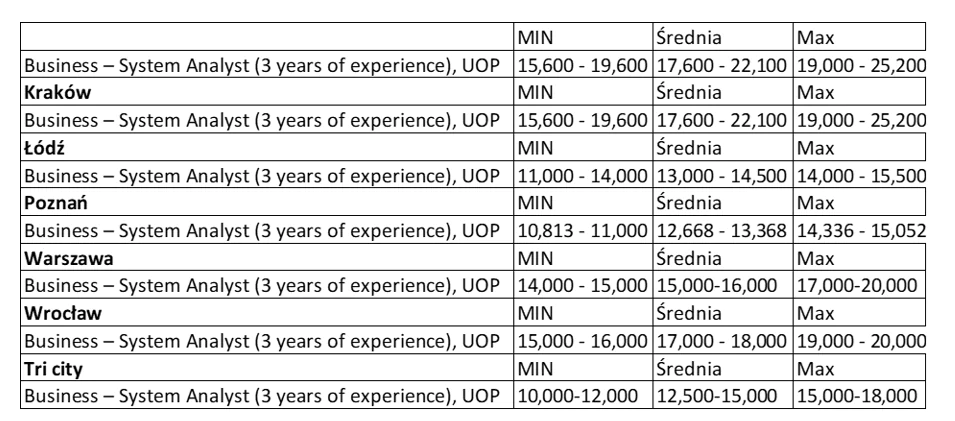Business Analyst in IT – who are they, salaries, and how to become one?
Table of contents
In the era of digital transformation, where modern technologies permeate nearly every aspect of life and business activities, the ability to bridge technological know-how with real business needs becomes a key element in achieving success.
In this rapidly changing context, the role of a Business Analyst in the IT industry is particularly important, acting as a link between the world of technology and the business requirements of organizations. Let's take a closer look at this fascinating profession, its complex demands, career prospects, and the financial aspects that play a significant role in making this profession attractive.
Who is a Business Analyst in IT?
A Business Analyst is a specialist who operates at the intersection of technology and business. In the IT sector, they play a pivotal role by being responsible for creating a bridge between business needs and technological solutions. Their primary task is to deeply understand business requirements, thoroughly analyze these requirements, and then transform them into clear and precise functionalities that development teams can effectively implement. The Business Analyst acts as a translator and mediator between business departments and IT, ensuring that technological solutions effectively support the organization's strategic goals. Key skills include excellent communication, analytical thinking, and a thorough understanding of both business and technological aspects.
How to Become a Business Analyst in IT?
The path to becoming a Business Analyst can be diverse. Many current specialists have education in fields such as computer science, management, or economics. However, education is not the only key to success in this field. Practical skills such as analytical thinking, effective communication with various stakeholders, and a comprehensive understanding of business processes are far more important. Basic tools essential for a Business Analyst can be mastered through participation in courses, IT training, and postgraduate programs.
Tools and Skills
A Business Analyst must be proficient in multiple tools to efficiently transform business requirements into concrete technological solutions. Understanding process modeling techniques like RUP, UML, or BPMN is crucial for effective business analysis. Additionally, the ability to use project management tools such as JIRA or Confluence allows for efficient work organization and project progress monitoring.
Career Prospects and Salaries
With the dynamic growth of the IT sector and widespread adoption of new technologies, the demand for Business Analysts is rapidly increasing. Companies recognize that investments in technology are crucial for success, and the Business Analyst is a central figure in the process of translating business needs into specific IT solutions. Salaries for Business Analysts vary and depend on experience level, skill set, and location. Financial prospects for professionals in this field are attractive, especially as experience is gained.

Summary
The role of a Business Analyst is much more than just a job. It's an active role that allows participation in shaping an organization's future through smarter technology utilization. Collaborating with both business and technology teams, analyzing and transforming requirements, and creating innovative solutions are key elements of this role. Individuals who can combine analytical, communication, and technical skills will find business analysis to be an exciting field for development in the era of digital transformation. The future belongs to those who understand and effectively integrate the worlds of technology and business.
Joanna Wróbel, Team Leader at Antal IT Services













